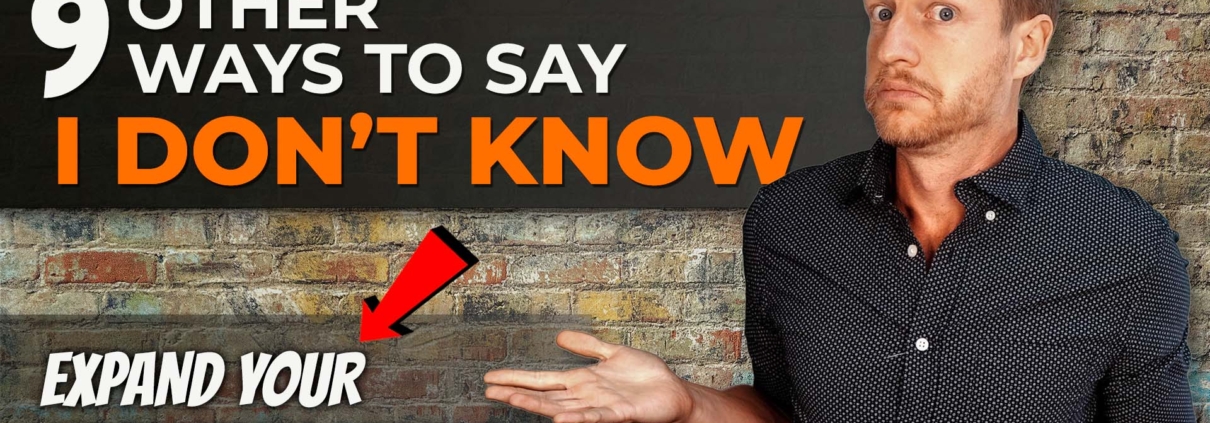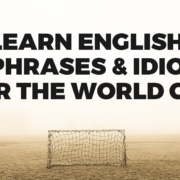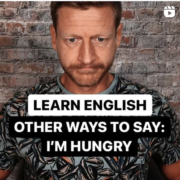Do you want to expand your vocabulary?
If so, here are nine other ways to say, “I don’t know” in English.
Watch the lesson and read on to learn more.
Other Ways to Say “I Don’t Know”
Let’s start with a retraction.
1: I Dunno
This is useful to know and learn.
English speakers use retractions when they speak all the time.
In this case, I don’t know becomes I dunno.
The schwa is used here too: /dəˈnoʊ/
Practice this a few times so that you can say it. You might not want to use this all the time – it is informal – but it’s good to know so that you can understand English speakers.
2: I’m not sure
- who are Preston playing tomorrow?
- To be honest, I’m not sure
This can mean “I’m not certain” but in this case, it means “I don’t know.”
In the video, I asked Siri who Preston are playing. There are two interesting parts to this. Siri used the phrasal verb “take on” instead of play.
And it said Preston is instead of Preston are.
3: Great question
This is generally used in business settings and when dealing with customers. Here’s an example:
- Hello, Dabestest Pizza
- Are you guys open on Christmas Eve?
- Great question, erm, my boss isn’t here right now, can I get back to you that?
This is an indirect way of saying I don’t know. We also used the phrases can I get back to you.
We use this when we want to contact someone later to give the information they requested. Another example is:
- did that guy ever get back to you with a quote for the new roof?
4. I’m not the best person to ask that
- hey, could you tell me where the library is?
- I’m not the best person to ask that
- Oh, are you visting here too?
- No, I just don’t like libraries
Strange example, I know. However, hopefully, you’ll remember it.
This means that you don’t have the knowledge to answer that question because of your situation.
5. I have no idea
- the swinger hit a Baltimore chop off the dish that looked more like a Texas-Leaguer
- I have no idea what you’re talking about
This is baseball jargon. I don’t understand it.
To have no idea is strong and direct. However, it can also be used to add emphasis when talking about an experience good or bad.
- how was that marathon you ran?
- You have no idea how hard that was – my body is still aching 5 days later
6. I haven’t got a clue
- I haven’t got a clue what to get her for her birthday
- Well, what does she like? What does she like doing?
- I dunno
This is similar to number five. Again, this is quite direct. In the U.S., you’re likely to hear, I haven’t a clue.
7. I’m sorry
This is where you apologize for not knowing something.
- do you know where the library is?
- I’m sorry, I don’t live here
People like to apologize all the time. This isn’t limited to not knowing something.
8. Don’t ask me
- who’s Paul dating at the moment?
- Don’t ask me, I don’t care
This is very strong. It’s often used when you’re irritated or annoyed that someone has asked you that question. Or it can be used when you agree with someone:
- Why did you get rid of the meat feast pizza?
- don’t ask me, it wasn’t my decision and I have no idea why
9. My best guess is
- what do you think they’re building here?
- I’m not sure, my best guess is a new apartment complex
This is where you don’t know something but you want to make a guess. Another example is:
- do you think he will run for president again?
- I’m not sure but my best guess is that he will








